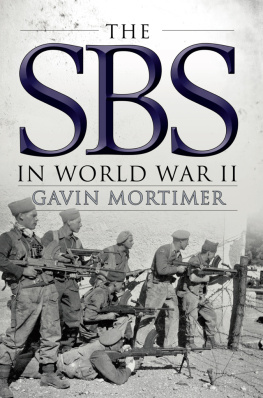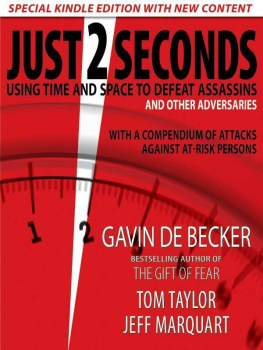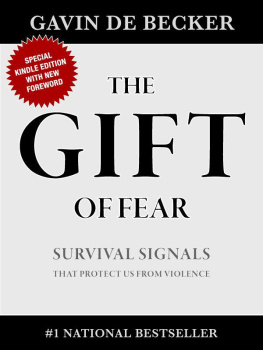I would like to thank Evgeniya Prusskaya, Alexandre Tchoudinov and Denis Fomin-Nilov at the State Academic University for the Humanities for their warm friendship and generosity during my visits to Moscow. I would also like to thank Alan Forrest, whom I first met in Moscow, for his engaging insights on the French Revolution and Napoleonic period. The conversations and meetings while working on the grant project there have been intellectually stimulating and have fed directly into many of the topics treated in this book.
I would also like to thank my colleagues at Cardiff University. In particular, I owe a debt of gratitude to James Ryan for his eagerness to answer any questions I had on Russia and the Russian Revolution. The round table he organized in Cardiff on comparative revolutions and revolutionary paradigms in 2017 provided an excellent opportunity to elaborate many of the broad ideas explored in this book as well as exchange ideas with other participants such as Colin Jones and Geoffrey Hosking. I am also indebted to Federica Ferlanti and Ian Rapley. Their reading recommendations and insights on China and Japan respectively were extremely helpful and greatly appreciated.
I am also grateful for the assistance of Abbie Rands at Cardiff University who compiled data used in certain maps featured in this book.
Research for this book was funded by Cardiff University and through the State Academic University for the Humanities (Russia) with the support of project N 14.Z50.31.0045 from the Ministry of Education and Science of the Russian Federation.
Revolution is a term with a precise meaning, the essayist Perry Anderson once remarked: the political overthrow from below of one state order and its replacement by another. Yet to claim that there is a precise meaning when it comes to revolution is misleading. If scholars share a general idea of revolutions as moments of political disruption and change, there is less agreement when it comes to questions regarding what generates revolutions, what causal factors influence them or why certain revolutions take the particular paths they do. These questions are, however, fundamental to how we conceptualize revolutions and the changes they produce. Revolutions have elicited a great deal of fascination among historians and theorists over the years. That said, they are also subjects of intense debate and speculation.
Writing in the aftermath of the abortive Italian revolution of 1848, the Milanese republican Carlo Cattaneo was candid when addressing what he believed to be the cause of the failed uprising. Revolution is the execution of an idea, he remarked. If there is no idea there can be no revolution.
The enlightenment paradigm remains only one among many received traditions that have sought to explain revolution in the modern world. For much of the twentieth century, Marxists emphasized class struggle and material factors in explaining the causal mechanisms that drove revolutions. Instead of ideas and ideology, they focused their attention on the social and economic inequalities that generated conflicts and propelled change within societies. Despite their differing positions, however, Marxist and structural theorists were inspired by a similar goal: to outline a general causal model explaining how and under what circumstances revolution occurred.
In recent years, various social theorists have sought to move away from static explanatory models built upon fixed criteria and rigid definitions of what does and does not constitute a revolution. As Bjrn Thomassen has argued, there is no perfect model that political theorists can turn to as an archetype of modern revolution.
In turn, greater appreciation for revolution as a historically situated phenomenon has also renewed interest in comparative models of examination. Drawing upon methods of discourse analysis derived from cultural history, Keith Michael Baker and Dan Edelstein have proposed approaching revolution as a script which draws upon historical models and adapts them to local circumstances. In their opinion, revolutionaries are constantly working within inherited frameworks that provide a blueprint for political action in the present. These scripts are copied and modified as needed, and in some cases rewritten altogether to create new revolutionary models of action. For the first half of the nineteenth century, the French Revolution indisputably furnished a model to which other revolutionaries looked. At mid-century, Marx revised the revolutionary script to offer a reworked model that would inform subsequent movements in the years ahead. In interpreting revolutions as scripts that are constantly acted out and elaborated upon, Baker and Edelstein have attempted to outline a comparative framework that eschews broad sociological structures and takes account of historical context and specificity. At base, this theory sees revolutions as essentially imitative and mimetic. It explains why revolutions might follow similar patterns or display a familiar repertoire of behaviors and actions. It also explains why revolutionaries often appeal to a common stock of symbols, representations and collective memories when engaging in acts of resistance.
This rough historiographic sketch is by no means definitive. Yet it does serve to underscore the contentions and diverse range of opinions surrounding the topic of political and social revolution in the modern period. This book intends a broad examination of Europes revolutionary history and political culture in the long nineteenth century. It argues that Europes revolutionary events possessed their own distinct contours but were not necessarily unconnected phenomena. Rather than assessing revolution as a Nineteenth-century radicals and political thinkers often partook in such acts of creative imagining as they worked toward far-reaching social transformations and sketched the outlines of future utopias.
Taking into account moments of political upheaval and consolidation during the nineteenth century, this book examines the ways in which political actors attempted to construct new definitions of sovereignty and social unity in a period characterized by vast social, economic and governmental change. In this respect, it examines both the dynamics of revolutionary situations and how broader ideas of community informed movements and invested them with political agency. This approach enables a view of revolution as a process while also remaining conscious of the role revolutionary aspirations and discourses played in sustaining radical movements. In certain cases, the after lives of revolutions were just as important as the revolutionary experiences themselves, suggesting a wider lens is necessary to appreciate the types of communities that revolutionary aspirations fostered. Intellectuals and elites of varying stripes reinforced solidarities through appeals to common revolutionary traditions, memories and experiences, which in turn provided the impetus for new radical ventures. While it is accepted that revolutions drew their substance from new ideas of natural rights and popular sovereignty stemming from the Enlightenment, these abstract ideas were only one factor among many that catalyzed revolutionary movements.
The long nineteenth century stood at the crossroads of a volatile and changing world. Popular protests responded and reacted to growing state bureaucracies. Racial and ethnic tensions boiled to the surface in European and colonial peripheries as imperial metropoles democratized. Elites agonized over the perceived social and political divisions generated by modernization. These and other anxieties typically served to animate instability during the period and encouraged political writers and actors to imagine new models of authority believed capable of reuniting societies that appeared hopelessly fractured. One of the principal arguments of this book insists that revolutions should be understood as efforts to manufacture new social relations and forms of collective authority at critical moments when established powers proved unable or unwilling to do so. Desires for social unity manifested themselves in various ways, from the French idea of a political community of citizens announced in 1789 to declarations of national brotherhood and Marxist notions of social egalitarianism elaborated later in the century. Although these envisaged societies frequently embodied the most extreme paradoxesat once supporting democracy and terror, emancipation and empire, equality and slavery, universal rights and ethnic particularismthey nonetheless reflected the persistent promise of a restored and regenerated community that lay at the heart of nineteenth-century revolutionary movements.










